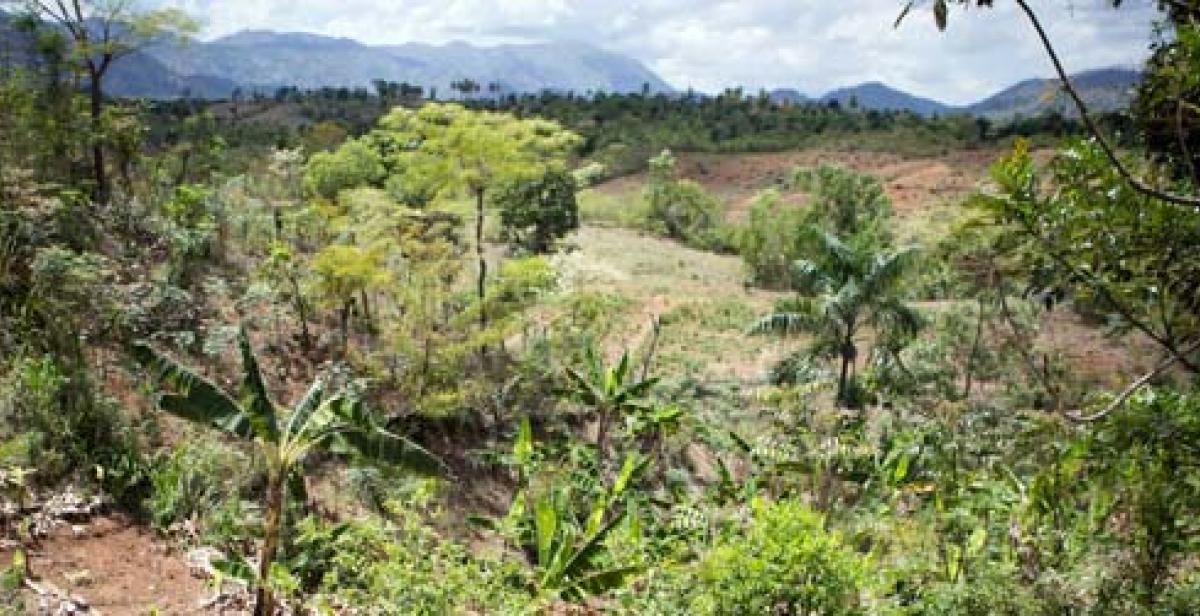Progressio development worker Bernardo writes:
During the month we worked on the development of a new project to strengthen the advocacy skills of local organizations. This will make them better able to lobby and negotiate with public and state entities over environmental issues, sustainable production and agricultural marketing. This will be a cross-border project in collaboration with (DR-based) Solidarid Fronteriza's partner organisation in Haiti, Solidarite Fwontalye.
Managing water resources
We are also working on funding for another project that will contribute to the management and protection of the upper basin of the Massacre river (on the border of DR and Haiti).
It's important that communities can be involved in managing these natural resources. The overall aim is to improve the quality of life for residents and reduce environmental vulnerability in river basins. This will be done by recovery of degraded areas, organisation, management and control and capacity building of natural resources.
Degradation of water resources
The Massacre river is the most important shared water resource of both countries and its gradual degradation has considerable implications for communities along the border. Yet, despite the importance of protecting water sheds and water resources, local governments are not prioritising this issue. That's why Solidaridad Fronteriza and Solidarite Fwontalye are working hard to raise awareness on these issues and looking for funding opportunities.
More support for families
We're also hoping to get funds to continue work on the Green Libón project, so increasing to 50 the number of beneficiaries who receive support with coffee plantations, agricultural diversification and small livestock (improved goats). In this sense, we are trying to enlarge gradually the support for families associated to UNAPROBOSQUE and increase also opportunities for collaborating on marketing of products, in particular coffee and cacao.
Learning the lessons
In addition, we've been working on systematization of the experience of agroforestry systems. This means making sure we capture what we learned about creating sustainable production systems in our work with beneficiary farmers of UNAPROBOSQUE, so that others in future can follow their example.
The general objective is to highlight the different models for sustainable production developed in our target communities, and to show the social, economic and environmental impacts of these production systems. Additionally we want to document the process, developed with beneficiary communities, of establishing these sustainable production systems and ensuring their long-term sustainability.
Best practice for the future
This work is crucial to enable us to analyse difficulties, learn lessons, and identify best practice for future interventions. We hope also that we can capture the attention of public and private entities and donors so that they will continue to fund and support these kinds of interventions.
Photo: Landscape in rural Haiti (photo © Fran Afonso/Progressio)
 Read more stories from our food security project
Read more stories from our food security project
Return to Food for a better future home page



